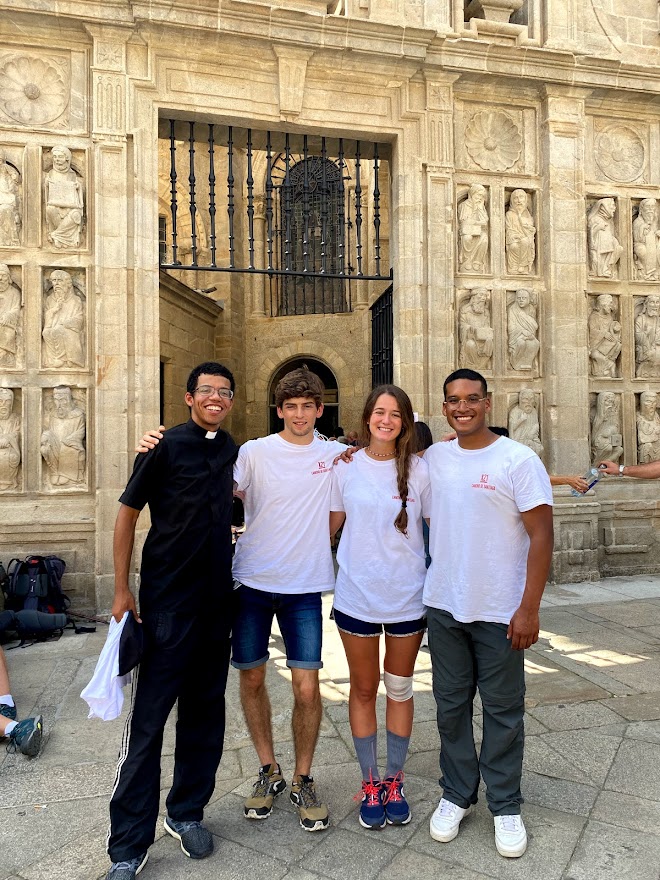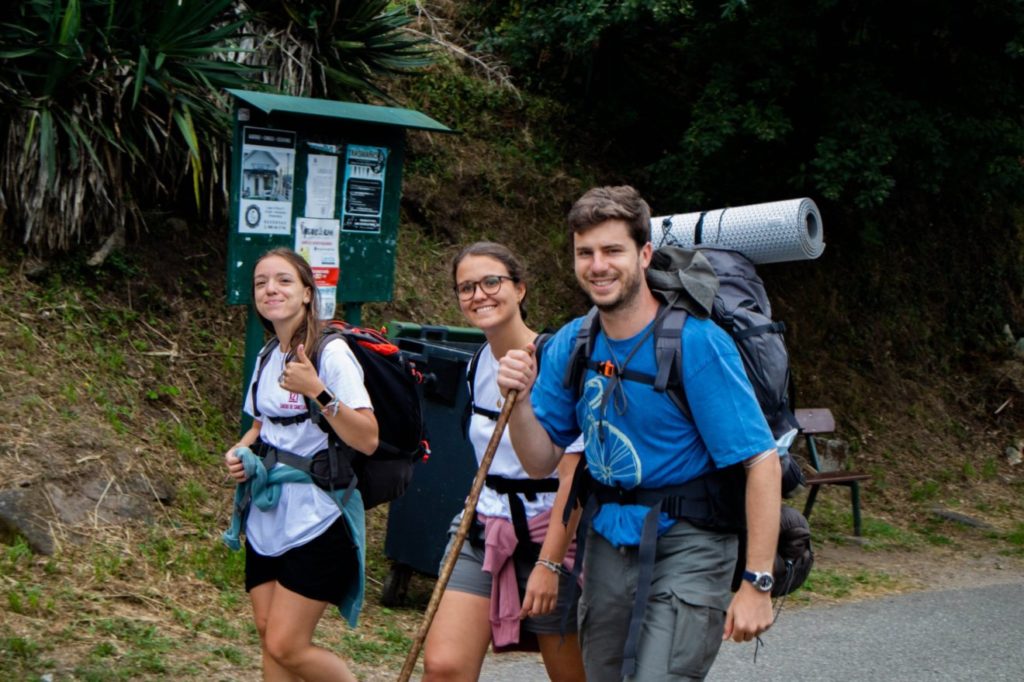Benedict XVI said when he visited Santiago in 2010 that to go on pilgrimage "does not consist only in going out of oneself towards the Greatest, but also in walking together". This double aspect of pilgrimages - letting oneself be looked at by God in order to look at the other with His eyes - is at the heart of the Gospel doctrine (for example, the well-known episode of Mt 22:34-40 or the words of Jn 13:34 and 1 Jn 4:20); and it is also what marked the Way of St. James that Pastoral Universitaria de Madrid organized this summer.

Almost sixty young university students -most of them students, some already graduated- accompanied by D. Enrique Rueda and D. Hilario Mendo, respective chaplains of Industriales UPM and Derecho UCM, left Mougás (Pontevedra) on July 20 and reached the city of the Apostle six days later. But everything had started two days earlier. On Sunday 18 we left Madrid and headed to Fatima. On the way, we were able to enjoy a Mass and a colloquium with the Carmelites of Ciudad Rodrigo, who imbued the group with their simplicity and spirit of prayer.
For Diego, from Industriales, this was "the best way to begin" since "our Mother, who is very good, accompanied us throughout the pilgrimage". The silence and peace of the Marian shrine created a favorable atmosphere for us to place our intentions in the hands of the Blessed Mother: "families, friends, worries and projects, in short, everything", as Mimi, from Medicine, and Maria, from Pharmacy, said.
We gave it all to her and she, in turn, taught us how to pronounce her fiatI said a total "yes" to God's will, to what He wanted to happen in those days. And things happened. Because when one trusts in the Lord, when in walking "the only compass is abandonment", as St. Therese of Lisieux would say, Christ accomplishes great works.
Galicia -from the sea of the first days to the vines of the last stages- witnessed how the group breathed clean joy. Anyone who approached us, or who overtook us, could glimpse the help in carrying the injured or the deep conversations that were taking place between people who had not known each other for days.

Luis, one of the organizers, tells us with great enthusiasm how, leaving Redondela, during the half hour of silence that began each day, he saw several ladies who crossed themselves as they crossed paths with us. Itzi, from Medicine, says that "on the Camino I have met many wonderful people, but above all I have deepened my friendship with God. It has been an unforgettable experience that has left its mark on me.
It was enough to see the times of prayer after the Masses to understand testimonies like this one, words like those of Ignacio, a student of Organizational Engineering, - "we have seen how God's love has no limits", he says- and even conversions like that of Paloma, in her last year of Medicine: "For me this Camino has been a light at every step, and an awakening in my heart that has helped me to know God and begin to love Him... simply".
With our hearts full of the Lord and with the stripping of superficialities that six days of walking and fatigue give us, we were able to put into practice the "see how they love one another" of the first Christians. To go out to meet the needs of others, to the "peripheries", which on the way to Santiago are nothing more than a companion eager to talk.
We discover "that the best of the Camino is always found when you look at your side," as María Zavala, an industrial engineer, says, and we hope, as does her colleague Ana Molina, that "our self-imposed limits and our fears do not prevent us from living life. So that, when we return, "we can spread that supernatural happiness which," in the words of Ana Vendrell, also from the ETSII, "we only enjoy in absolute abandonment". To shout to the world "that life sometimes tires, sometimes hurts, sometimes hurts... That it is not perfect, but that, in spite of everything, life is beautiful".









